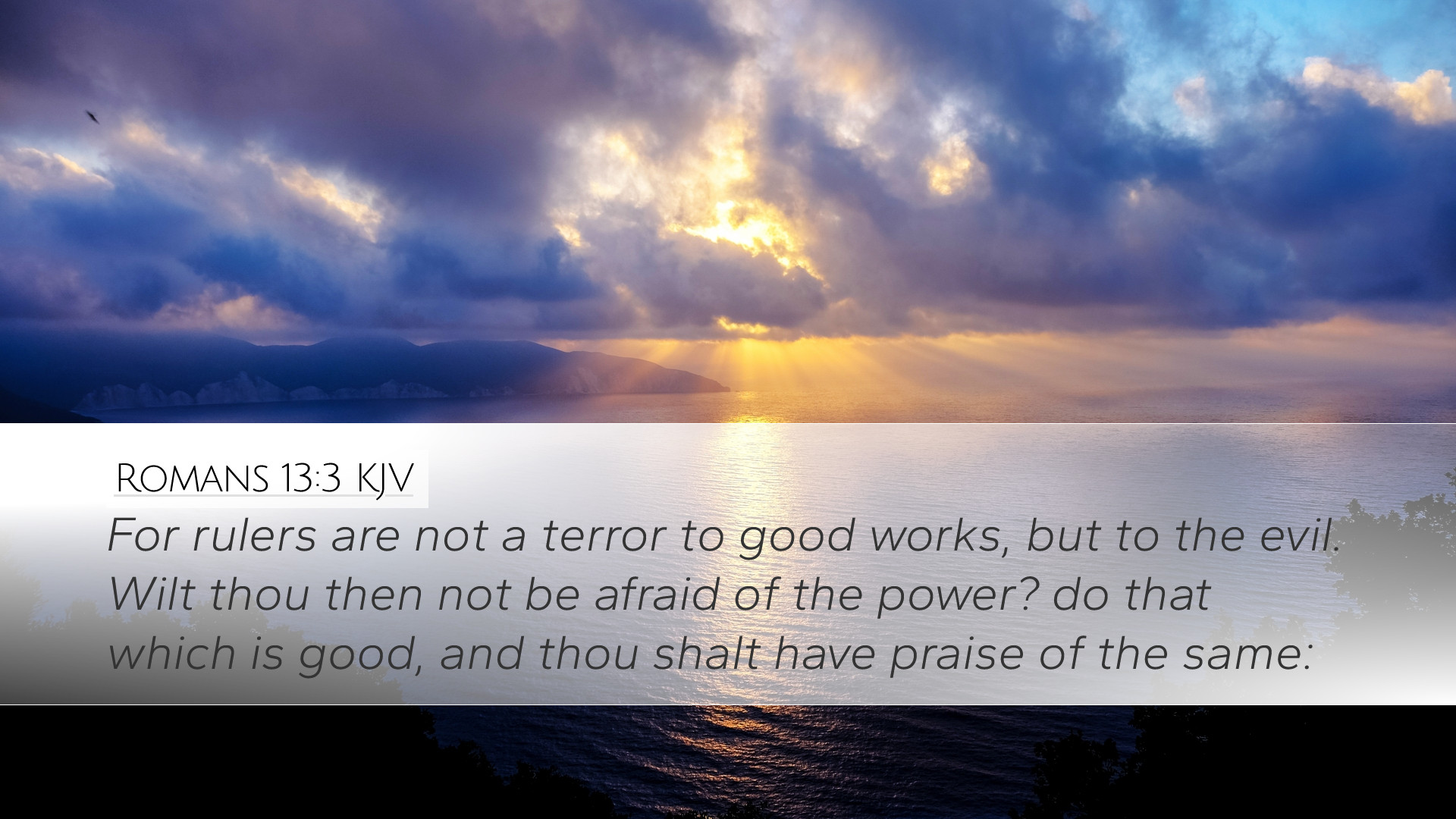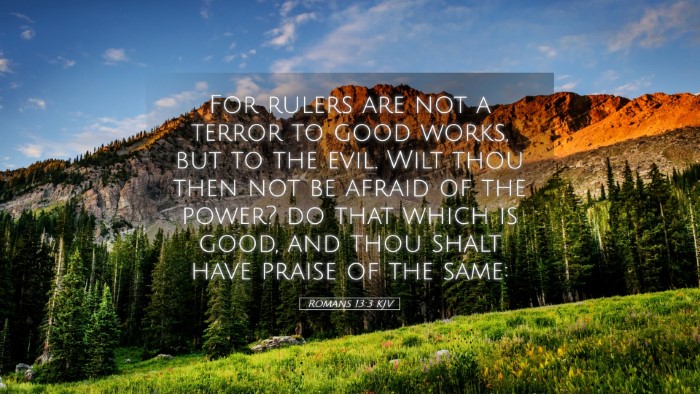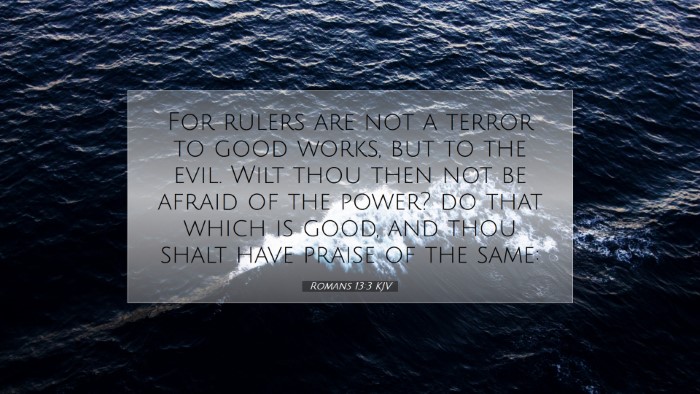Old Testament
Genesis Exodus Leviticus Numbers Deuteronomy Joshua Judges Ruth 1 Samuel 2 Samuel 1 Kings 2 Kings 1 Chronicles 2 Chronicles Ezra Nehemiah Esther Job Psalms Proverbs Ecclesiastes Song of Solomon Isaiah Jeremiah Lamentations Ezekiel Daniel Hosea Joel Amos Obadiah Jonah Micah Nahum Habakkuk Zephaniah Haggai Zechariah MalachiRomans 13:3
Romans 13:3 KJV
For rulers are not a terror to good works, but to the evil. Wilt thou then not be afraid of the power? do that which is good, and thou shalt have praise of the same:
Romans 13:3 Bible Commentary
Bible Commentary on Romans 13:3
Romans 13:3 states, "For rulers are not a terror to good works, but to the evil." This verse emphasizes the role of government authority in the context of moral order and societal peace.
Contextual Analysis
This verse comes within the broader discussion that the Apostle Paul presents regarding the Christian's relationship to governing authorities. Romans 13 focuses on the divine order established by God through civil governance. In essence, Paul articulates that these authorities serve a critical role in maintaining social order, functioning under God’s overarching authority.
Insights from Commentaries
-
Matthew Henry's Commentary
Henry emphasizes the nature of rulers, noting that their primary purpose is to provide a framework for justice and order. He points out that while many might fear government due to its punitive powers, truly they should fear if they are doing evil. Henry states:
"Rulers are designed to be a terror to those who commit evil, not to those who walk according to the precepts of righteousness."
This assertion underlines that a just ruler will uphold the good and penalize wrongdoing, reinforcing moral duties among the populace.
-
Albert Barnes' Notes
Barnes provides a practical illustration of the text by emphasizing practical obedience to civil law. He remarks that when citizens conduct themselves in accordance with the law, they can expect peace from authority. His insights include:
"Good conduct is a protector under the different forms of government. It is those who do evil who have reason to fear their rulers."
This observation suggests a reciprocal relationship between government authority and citizen behavior, wherein good governance rewards righteousness.
-
Adam Clarke's Commentary
Clarke delves into the theological implications of Paul’s teaching. He indicates that understanding government as God's servant creates a clear distinction between divine authority and human governance. Clarke elaborates:
"The power received by rulers is ordained by God, and thus they wield it with moral responsibility."
This perspective highlights that while rulers hold significant power, they are also accountable to God for their actions. Clarke’s view challenges rulers to act righteously and reminds citizens of the sacredness of their role in promoting justice.
Theological Implications
Combining insights from Henry, Barnes, and Clarke provides a nuanced understanding of authority within Christian theology. The implications are manifold:
- Divine Ordination of Authority: Paul asserts that all authorities are established by God. This doctrine reinforces the belief in the sovereignty of God over all aspects of life, including governance.
- Expectation of Righteousness: Paul’s words create an expectation that both rulers and subjects maintain a standard of righteousness. Rulers should promote good, while citizens are to live justly, fostering a community that honors God.
- Judgement of Authority: The text serves as a reminder that authorities will be judged for their conduct, aligning with Clarke's theological insight. This promotes accountability in leadership.
Practical Applications
For pastors, students, theologians, and scholars, the application of Romans 13:3 evokes several significant considerations:
- Encouraging Good Conduct: In their teachings, pastors should emphasize the importance of good conduct among believers as a witness to their faith and as a means of engendering societal trust.
- Understanding Authority: Scholars might promote deeper discussions on the role of Christians in politics, navigating the balance between obedience to God and human authorities.
- The Call for Justice: The church is called to stand against injustices perpetrated by authority figures, advocating for solutions based on scriptural principles.
Conclusion
In Romans 13:3, Paul succinctly captures the essence of the purpose of government. The exegesis offered by Matthew Henry, Albert Barnes, and Adam Clarke presents a rich tapestry of insights that reveal the integral relationship between righteousness, authority, and divine purpose. As believers, understanding this dynamic equips them to engage both their faith and societal responsibilities holistically, embodying the principles of good works that reflect God's order in a broken world.


